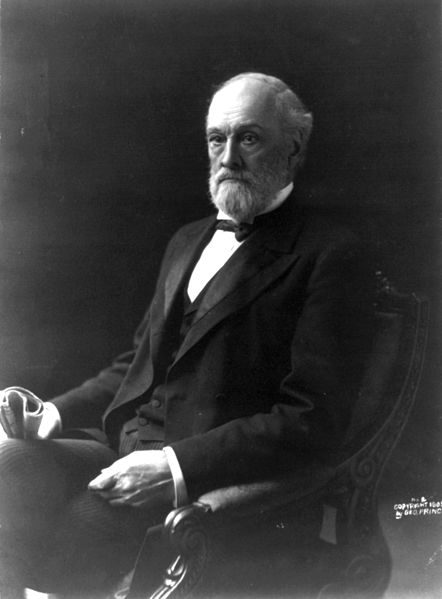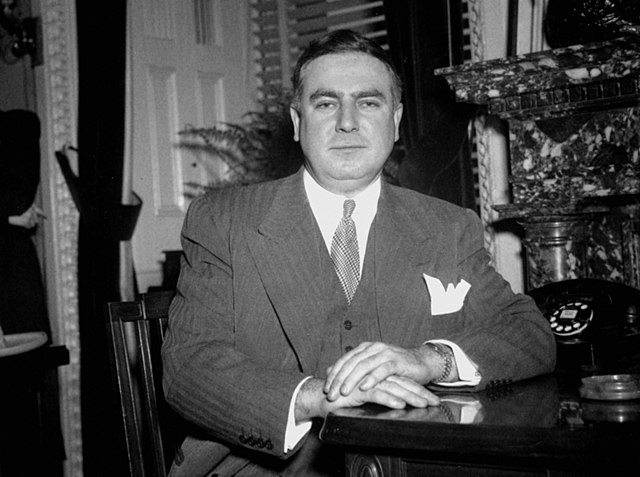United States congressional delegations from Connecticut
Since Connecticut became a U.S. state in 1788, it has sent congressional delegations to the United States Senate and United States House of Representatives, beginning with the 1st United States Congress in 1789. Each state elects two senators to serve for six years in general elections, with their re-election staggered. Prior to the ratification of the Seventeenth Amendment in 1913, senators were elected by the Connecticut General Assembly. Each state elects varying numbers of members of the House, depending on population, to two-year terms. Connecticut has sent five members to the House in each congressional delegation since the 2000 United States Census.
Oliver Ellsworth, Connecticut senator who drafted the Judiciary Act of 1789
Orville Platt, Connecticut senator who helped draft the Platt Amendment
Brien McMahon, Connecticut senator who wrote the Atomic Energy Act of 1946
Joe Lieberman, Connecticut senator who was the 2000 Democratic vice presidential nominee, becoming the first Jewish-American to be a major party nominee
Clare Boothe Luce was an American writer, politician, U.S. ambassador, and public conservative figure. A versatile author, she is best known for her 1936 hit play The Women, which had an all-female cast. Her writings extended from drama and screen scenarios to fiction, journalism, and war reportage. She was married to Henry Luce, publisher of Time, Life, Fortune, and Sports Illustrated.
Clare Boothe Luce
Clare Boothe as a young socialite in the 1920s
Poster from the 1939 film The Women
General Chiang Kai-shek and Madame Chiang welcome Clare Boothe Luce, April 1942








